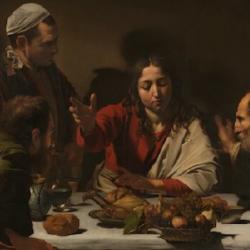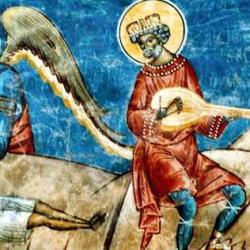In Life Together, Bonhoeffer explains that “Christian community is not an ideal, but a divine reality” (quoted in Paul House, Bonhoeffer’s Seminary Vision, 109). That is not merely a theoretical distinction. In Bonhoeffer’s opinion, “On innumerable occasions a whole Christian community has been shattered because it has lived on the basis of a wishful image” (quoted in House, 109).
Christians join a Christian community with a distinct idea of what they should find, but, in House’s words, they “can quickly become very disillusioned with the community. They may wish to change it, to critique it, or leave it” (109).
True community can exist only when these wishful delusions are shattered. That shattering is an act of grace: “God is not a God of emotionalism but the God of truth. . . . Only that community which enters into the experience of this great disillusionment with all its unpleasant and evil appearances begins to be what it should be in God’s sight, begins to grasp in faith the promise that is given to it. The sooner this moment of disillusionment comes over the individual and the community, the better for both” (quoted in House, 109-110).
Bonhoeffer goes so far as to claim that “God hates this wishful dreaming” because it makes the “dreamer proud and pretentious. Those who dream of this idealized community demand that it be fulfilled by God, by others, and by themselves. They enter the community of Christians with their demands, set up their own law, and judge one another and God accordingly” (quoted in House, 110).
Pastors are not immune to this temptation, and often complain about their congregations to God and to other people. Bonhoeffer warns, “Congregations have not been entrusted to them in order that they should become accusers of their congregations before God and their fellow human beings” (quoted in House, 111).
Gratitude is the main resistance to both this idealism and the cynicism that quickly follows. “God already has laid the foundation of our community” and thus “we enter into that life together with other Christians, not as those who make demands, but as those who thankfully receive” (111).















